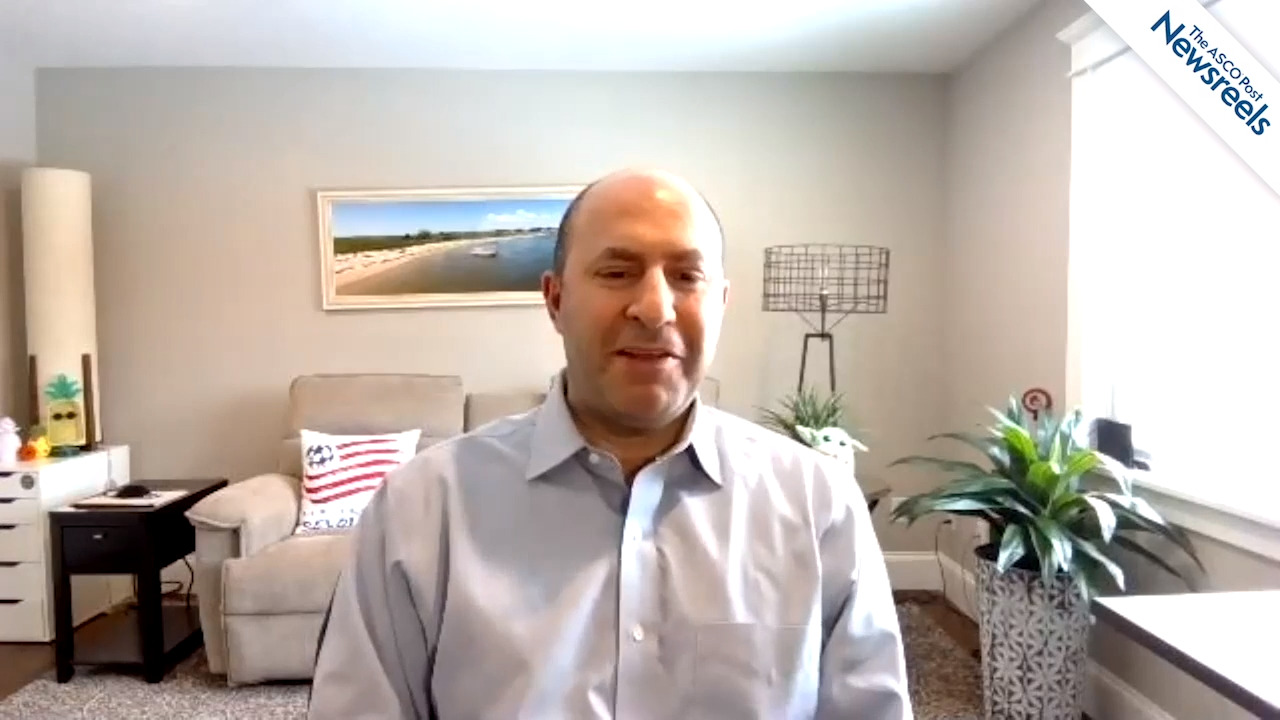Daniel M. Geynisman, MD, on Bladder Cancer: Risk-Enabled Treatment After Neoadjuvant Chemotherapy
2021 Genitourinary Cancers Symposium
Daniel M. Geynisman, MD, of Fox Chase Cancer Center, discusses phase II results from the RETAIN BLADDER study, which sequenced bladder tumor samples while treating patients with neoadjuvant methotrexate, vinblastine, doxorubicin, and cisplatin chemotherapy. The goal was to increase metastasis-free survival and also preserve the bladder and quality of life (Abstract 397).
The ASCO Post Staff
Elizabeth R. Plimack, MD, of Fox Chase Cancer Center, discusses key abstracts discussed at this year’s meeting on bladder cancer and offers her views on the latest trends and findings (Abstracts 391, 393, 434).
The ASCO Post Staff
Toni K. Choueiri, MD, of Dana-Farber Cancer Institute, discusses phase III results of the CLEAR study, which showed that for first-line treatment of advanced renal cell carcinoma, lenvatinib plus pembrolizumab improved outcomes vs sunitinib. Lenvatinib plus everolimus also improved progression-free survival and overall survival rates vs sunitinib (Abstract 269).
The ASCO Post Staff
Sumanta K. Pal, MD, of City of Hope, discusses findings of the TIVO-3 study, which showed that the tyrosine kinase inhibitor tivozanib improved progression-free survival vs sorafenib in patients whose advanced renal cell carcinoma progressed after multiple lines of therapy (Abstract 278).
The ASCO Post Staff
Monika Joshi, MD, of Penn State Hershey Cancer Institute, discusses phase II results from the DUART study, which explored the efficacy of concurrent durvalumab, a checkpoint inhibitor, and radiation therapy followed by adjuvant durvalumab in patients with localized urothelial cancer of the bladder (Abstract 398).
The ASCO Post Staff
Elizabeth R. Plimack, MD, of Fox Chase Cancer Center, discusses phase III results from the KEYNOTE-426 study—specifically, an exploratory subgroup analysis of patients with advanced renal cell carcinoma who were randomly assigned to receive pembrolizumab plus axitinib and completed 2 years of treatment (Abstract 327).





